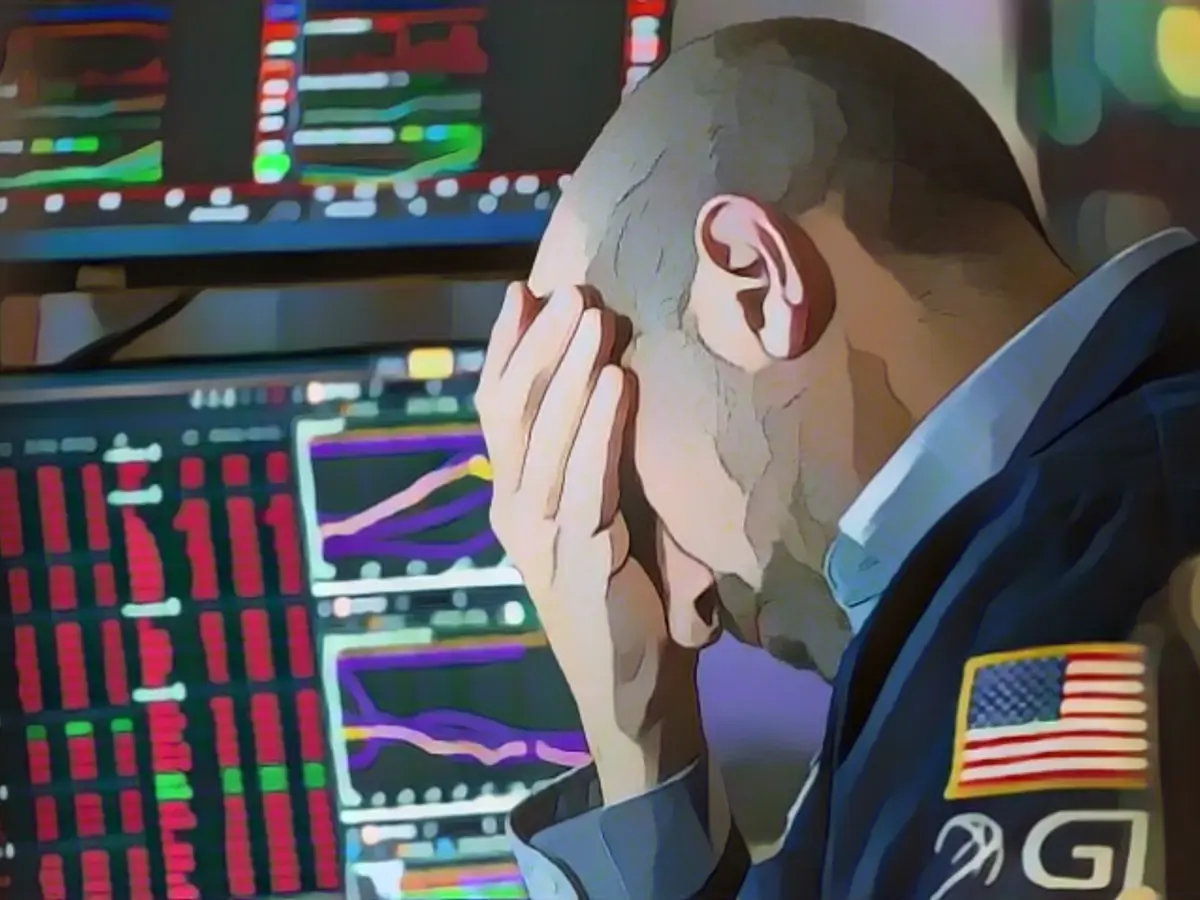Evergrande's Debt Dilemma: What Lies Ahead?
As Evergrande grapples with its massive debt issues, investors are left in limbo. The company has a 30-day reprieve to pay back its first bond repayment, with a second payment due next week. But the financial landscape remains murky, with many speculating about the Chinese government's role in the situation.
Market Reactions
Evergrande's shares plummeted by almost 12% on Friday, effectively erasing the gains made the previous day. The news of Evergrande meeting itsoverdue interest payments on a Yuan-denominated bond issued to mainland investors offered a glimmer of hope, but the stock has still lost 80% of its value this year.
Government Intervention?
With thousands of homebuyers, builders, suppliers, and small investors at stake, the Chinese government faces a tough choice. It needs to protect these vulnerable stakeholders while avoiding any apparent rescue mission to prevent a domino effect on other developers.
Rumors swirled last Thursday that the Chinese government, with the help of state-owned enterprises (SOEs), was closing in on a deal to restructure Evergrande. However, neither Evergrande nor the top Chinese regulatory body for SOEs responded to CNN Business' request for comment.
Rescue, Dissolution, or Breach of Contract?
Analysts are already considering the possibility of Evergrande being taken over by the government. "The government will probably provide capital to keep Evergrande building and selling homes to generate cash for debt repayment," said Peng Hong, Chief Economist at ING Greater China. According to Hong, it's quite likely that Evergrande becomes a state-owned enterprise or a part of one aimed at injecting capital into Evergrande.
Short-term Relief?
In the short term, Evergrande's transformation into a state-owned enterprise could help restore homebuyer confidence, according to analysts Stephen Cheung and Calvin Leung at Jefferies in Hong Kong. They also believe the move will reduce Evergrande's immediate liquidity pressure and facilitate debt restructuring with foreign and domestic bondholders.
Long-term Concerns
However, long-term concerns regarding a slowdown in the Chinese property market remain. With a 20% decline in home sales in August compared to the previous year – the steepest decline since February 2020 – Julian Evans-Pritchard, Chief China Economist at Capital Economics, stated that the demand for new urban housing is entering an era of long-term structural decline.
The reasons for this decline are numerous. Firstly, the number of marriages has decreased by 40% since 2013, reducing the demand from newlyweds. Secondly, population growth in urban areas has slowed. All of this indicates that competition among developers for a shrinking market segment will intensify.
The Future of Evergrande
Despite the possibility of Evergrande becoming a state-owned enterprise, analysts caution about long-term concerns surrounding the Chinese property market. The recent pattern of more stringent government intervention in the Chinese economy indicates that Evergrande's situation is likely just the tip of the iceberg, pointing to potential negative consequences for other Chinese industries.
- – This article was contributed by CNN's bureau in Beijing.

Related Reading:
Related Enrichment:
The current status of Evergrande is marked by ongoing financial distress and legal proceedings. Here are the key points regarding its debt situation and potential outcomes:
- Liquidation Orders:
- Tianji Holding: On February 17, 2025, the Hong Kong High Court ordered Tianji Holding, Evergrande's offshore subsidiary and guarantor, to be wound up due to insolvency[1][5].
- CEG Holdings: Another offshore unit of Evergrande, CEG Holdings, received a winding-up order last month, with creditors and contributories set to meet for the first time on February 19, 2025[1].
- Debt Crisis:
- Evergrande is facing a severe liquidity crisis, which has made it difficult to attract strategic investors. Its EV unit has also reported struggles in attracting investors amid this crisis[2][5].
- The company is dealing with over $300 billion in liabilities and is expected to face bond maturities totaling over 700 billion yuan (US$95.8 billion) this year[1].
- Government Intervention:
- Asset Sales: Evergrande has attempted to sell off some of its assets to raise capital, but these efforts have been largely unsuccessful. For example, a deal to sell a 51% stake in Evergrande Property Services to Hopson Development fell through[3].
- State Control: In 2021, the governments in Zhuhai and Nanshan District, Shenzhen, took control of sales revenue for Evergrande's properties to protect home-buyers and continue construction[3].
- Regulatory Actions:
- Revenue Overstatement: The China Securities Regulatory Commission (CSRC) found that Evergrande had overstated its revenue in 2019 and 2020, leading to a fine of 4.2 billion yuan (US$333 million)[3].
- Auditor Ban: PricewaterhouseCoopers LLP’s China unit expected to be banned from working in China for six months due to its involvement in the Evergrande scandal[3].
- Restructuring Efforts:
- Evergrande has been working on a debt restructuring plan but has failed to deliver a preliminary plan by the deadline. The company has proposed restructuring principles for its offshore debt but has yet to finalize a specific plan[3].
- Potential Outcomes:
- Liquidation: The liquidation of Evergrande's units could lead to the distribution of assets among creditors, which might include state-controlled entities. This process could also involve lawsuits against former auditors like PwC[3][5].
- State Acquisition: While there are no direct indications of a full-scale state acquisition, the Chinese government's control over property sales revenue and potential involvement in restructuring efforts suggest a significant level of oversight and intervention[3]. Thus, the future of Evergrande is shrouded in uncertainty, with a mix of short-term relief and long-term challenges as the road ahead.








